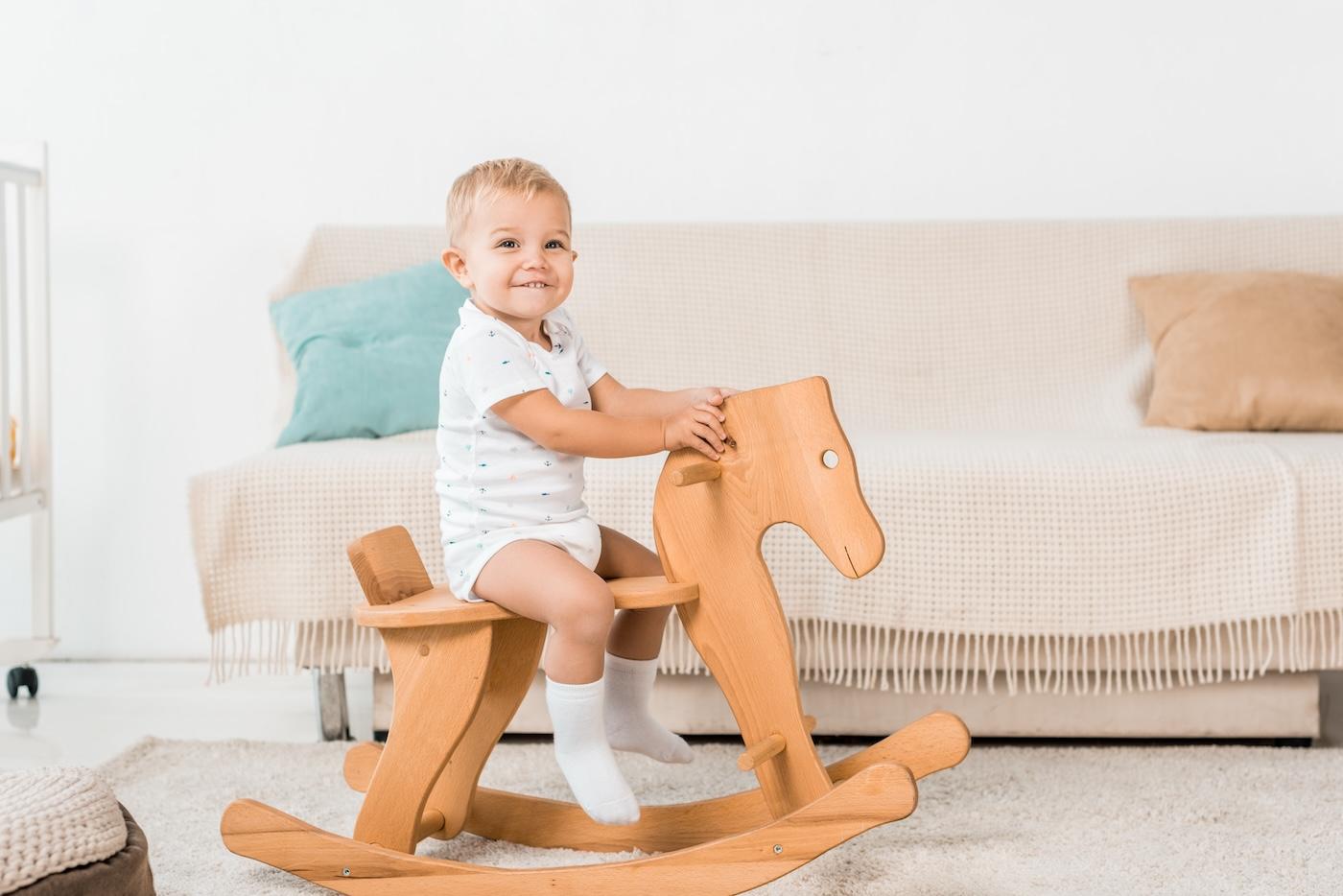BABY
Meconium: Your Newborn’s First Poop, Explained
Here is what you need to know about Baby’s first number two.

Written by
Dr. Harvey Karp

Of all of the monumental changes that come with becoming a parent, one of the strangest rites of passage has to be your new fixation with baby poo! Mums and dads will quickly become experts in their baby’s many different kinds of poos—and not just because they are up to their elbows in nappy changes (which may also be true). Poo can actually be a helpful indication of your baby’s health. This poo preoccupation begins the very first time a baby goes 'number two' with the epic-sounding (and kind of freaky looking) meconium.
What Is Meconium?
Meconium is a newborn’s first bowel movement. At the same time a baby is busy forming all of its cute little fingers and toes, they are also ingesting dead skin cells, amniotic fluid, and a substance called lanugo (the fine hair that covers a baby’s body and is shed before birth). All of that material forms meconium.
The look of a baby’s first poop can come as a shock! Meconium is black-green and extremely sticky, more tar than turd. In fact, it can seem almost impossible to wipe clean! Robin Williams said that meconium looks like a cross between Velcro…and toxic waste! But the good news is that it’s totally normal.
This amazing poo—made of hair and dead skin—sounds pretty gross, but you will be surprised to discover that it is almost odorless. That is because, at birth, a baby has almost no gut bacteria, so there are not yet any stinky bacteria which is what makes poop smell. (Wonderfully, poo smells sweet, as long as you are only feeding breast milk. Unfortunately, once they start eating anything other than that, doodoo becomes a bit disgusting!)
As soon as your newborn starts snacking on your colostrum or a little formula, the poop will start to change. A baby’s first meal will introduce intestinal bacteria. That changes the consistency, smell, and colour of poop. Breastfed babies go from dark green tar-y, 'silly putty' poops to a mustard yellow poo with little flecks of white. Formula-fed babies will go from meconium to a tan, paste-like poop that may resemble peanut butter (sorry if I just put you off of PB&J’s forever!).
Meconium Aspiration Syndrome
While meconium is not harmful on its own, it is definitely a problem if the baby passes their first stool before birth. The danger here is that the meconium can mix with amniotic fluid and be inhaled during or soon after birth causing serious problems for the baby (called meconium aspiration syndrome).
The healthcare provider/midwife can see that the baby has pooped inside because, when the bag of waters breaks, instead of being clear the amniotic fluid will be greenish. (Even the baby’s fingernails can get stained a little green!) If your baby did poo inside, your provider will suction the meconium out of the mouth and—if necessary—out of the windpipe. Some of these babies need an x-ray of the chest and may even need treatment with oxygen and antibiotics.
Who knew there was so much to learn about poo? And yet, here we are! If you have questions about your baby’s poo or if you suspect something is not quite right, call your paediatrician.
Disclaimer: The information on our site is NOT medical advice for any specific person or condition. It is only meant as general information. If you have any medical questions and concerns about your child or yourself, please contact your health provider. Breastmilk is the best source of nutrition for babies. It is important that, in preparation for and during breastfeeding, mothers eat a healthy, balanced diet. Combined breast- and bottle-feeding in the first weeks of life may reduce the supply of a mother's breastmilk and reversing the decision not to breastfeed is difficult. If you do decide to use infant formula, you should follow instructions carefully.
SHARE THIS ARTICLE
PARENT PICKS
Bestsellers



















